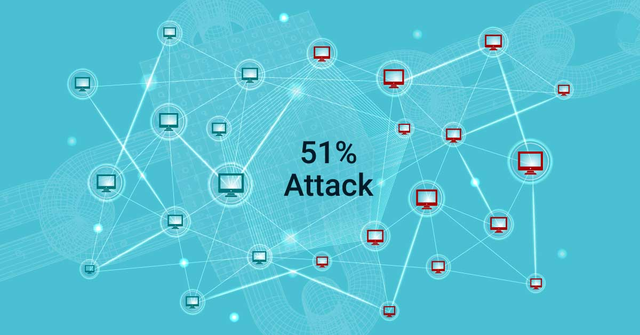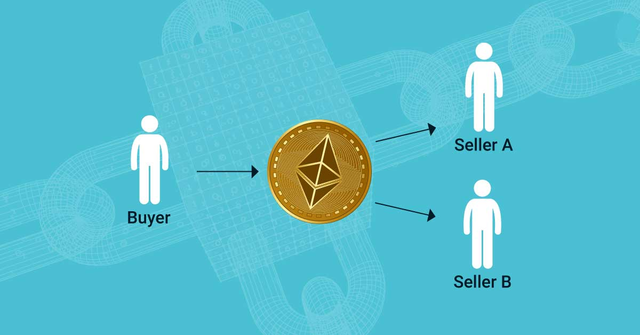What Are the Biggest Struggles With Implementing Security for a Blockchain Project?
The area of blockchain security is constantly experiencing unanticipated hazards, which raises the question, "Is Blockchain genuinely secure?"
Join the DZone community and get the full member experience.
Join For FreeFor a while now, it has been talked about how blockchain is slowly making its way into the different spheres of life. Now, it has become almost an indistinguishable part of the technological world. Blockchain technology is a prominent illustration of how security principles in financial transactions and information transmission have transformed.
Blockchain depends on cryptography, decentralization, and consensus to provide transactional trust. It provides a special data structure along with built-in security features. However, many firms and early adopters are experiencing persistent blockchain security issues.
The area of blockchain security is constantly experiencing unanticipated hazards, which raises the question, "Is Blockchain genuinely secure?" and casts serious doubt on its security. The intent of the discussion that follows is to provide a thorough overview of the major blockchain security-related struggles.
What Is Blockchain Security?
Blockchain networks are susceptible to fraud and hacking even though they provide a tamper-proof ledger of transactions. People with malicious intentions have successfully carried out several hacks and frauds over the years by manipulating known weaknesses in blockchain technology.
Blockchain security is a detailed risk assessment and management system for the secure functioning of a blockchain network, fulfilled by the implementation of a cybersecurity framework, security testing methods, and other best practices to prevent cyberattacks and fraud.
Struggles with implementing security for a blockchain project
Blockchain came into the limelight with its initial adoption into cryptocurrencies and slowly made its way to the other spheres of life. However, improper technical deployment can cause several blockchain security issues. Consequently, it may become weak and susceptible to various malicious actions by attackers, such as— slowing down the chain's operation, undoing transactions made on the blockchain, and stealing users' private keys, among others.
Here are a few security challenges that one can face while implementing a blockchain project.
1. Blockchain Attacks
Although blockchain is an immutable ledger of transactions, there are several attacks that have been commonly observed threatening the user's trust in the technology. Some of the prominent ones are listed below.
51% Attack
In a blockchain transaction, the miner adds transaction data to the public ledger. Also, blockchain miners secure blocks in the ledgers and connect them to form a chain. Attaching blocks, aka mining blocks, to the blockchain is the means to process transactions and move money securely in a blockchain. The blockchain miners' mining results serve as validation.
In a blockchain, decisions are based on the majority; if in case two or more blocks are mined simultaneously having conflicting transactions, then the block which secures the majority is added to the chain.

Now, if a hacker manages to control 51% or more of the mining power, the outcomes could be disastrous. The hackers can then exploit their dominant position to commit fraudulent transactions.
Routing Attack
Blockchain networks and apps rely on an enormous amount of real-time data flow. However, data transmission to ISPs(internet service providers) could be easily intercepted by hackers. Routing attacks' vulnerability to blockchain security resides in their anonymity. Routing attacks are often used to obtain funds or leak private information without alerting other network users. It is an assault against an ISP's uptime or involvement in a web-enabled system.
In a routing attack, an attacker can break a network into two or more parts, hampering the link between nodes in a particular chain or the ones outside it, thereby creating parallel chains. Also, the attacker can create a false route and deny transactions for some nodes.
Double Spending Attack
As the name suggests, a double spending attack happens when you use the same money to perform two or more different transactions. It’s basically a technical glitch, allowing users to duplicate money.
It occurs when a sender transfers an identical amount of money to several recipients while waiting for the initial transaction to be added to the block.
Although blockchain and cryptography act as a blockage to double spending, they can be seen during malicious acts like 51% or route attacks.
Private Key Compromise
Private key cryptography lies at the heart of the blockchain ecosystem. Hence, careless handling of cryptography keys can cause serious damage to one’s finances.
The prominent issue in most cases is the improper handling of private keys. Getting access to your private key is equivalent to controlling your cryptos and other blockchain data. In fact, hot wallet attacks have been the cause of billions of dollars worth of hacks in the crypto sphere.
Blockchain Endpoint Vulnerabilities
Most blockchain transactions have endpoints that are much less secure, even though blockchain has been hailed as being essentially "unhackable."
Several third-party providers may be enlisted to speed up blockchain transactions. Payment processors, smart contracts, and blockchain payment platforms are a few examples. The websites and apps of these third-party blockchain suppliers frequently have very lax security, which makes them vulnerable to hacking.
2. Smart Contract Vulnerabilities
In contrast to most other agreements, smart contracts focus primarily on financial assets. Therefore, due to the immutable nature of the Blockchain, faults in smart contracts that have already been deployed cannot be fixed.
Smart contract flaws could pose a security risk and serve as an intriguing target for unethical cybercriminals. In rare circumstances, capital collapse and financial losses are even possible without external exploiters.
Some commonly seen smart contract vulnerabilities are— Reentrancy attacks, broken access control, floating pragma, and frontrunning, among others.
3. Unaudited Code
Deploying unaudited code on the blockchain can become an expensive carelessness for many. More of the hacks cited on the Rekt leaderboard are unaudited smart contracts containing common bugs that could have been easily prevented. Smart contract audit verifies your code for correctness and enhances its functioning, and optimizes it for gas.
ImmuneBytes is one such company that has created a remarkable presence in the Web 3.0 security industry with its reliable smart contract audits. If you are looking for one, check out their website for more information.
4. Phishing Scams
Phishing is one of the most common forms of attacks seen in the online space, be it Web 2.0 or Web 3.0. It is a kind of baiting technique used by hackers to obtain a user's credentials, usually through a malicious link or email.
Hackers impersonate a reliable source to send emails to wallet key owners.
These emails use phony hyperlinks to ask for user credentials information. Users and the blockchain network are vulnerable to such assaults when hackers gain access to user credentials and private data. In recent years, there has been a significant increase in phishing assaults that are occurring in blockchain networks.
5. Employee System Hacks
The security issue that the Bithumb has popularized—a cryptocurrency exchange for bitcoin and Ethereum—was exploited for over $13M. Hackers could gain access to almost 30,000 user accounts due to a compromised employee server while the core servers were intact.
Closing Remarks
Undeniably, blockchain is a truly revolutionizing technology that combines the rigorous nature of coding with the process of consensus-building. Blockchain's security depends on the programming that powers it. Hence, running extensive tests and audits for any blockchain security vulnerabilities is imperative before making your blockchain public.
Every other day a million-dollar hack is making a headline. Your blockchain is increasingly vulnerable to such attacks. Even though a blockchain security audit may appear as an added cost, it is nothing compared to the expensive exploit you can experience due to a smart contract bug.
Opinions expressed by DZone contributors are their own.

Comments